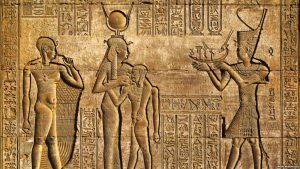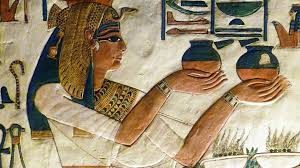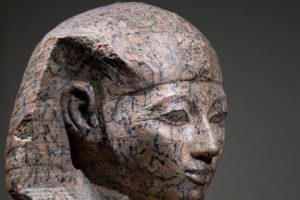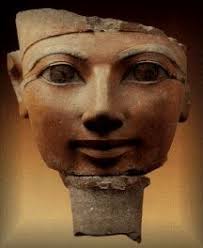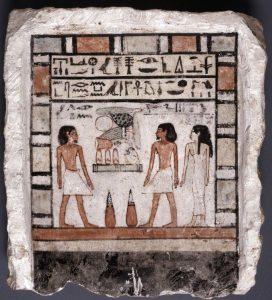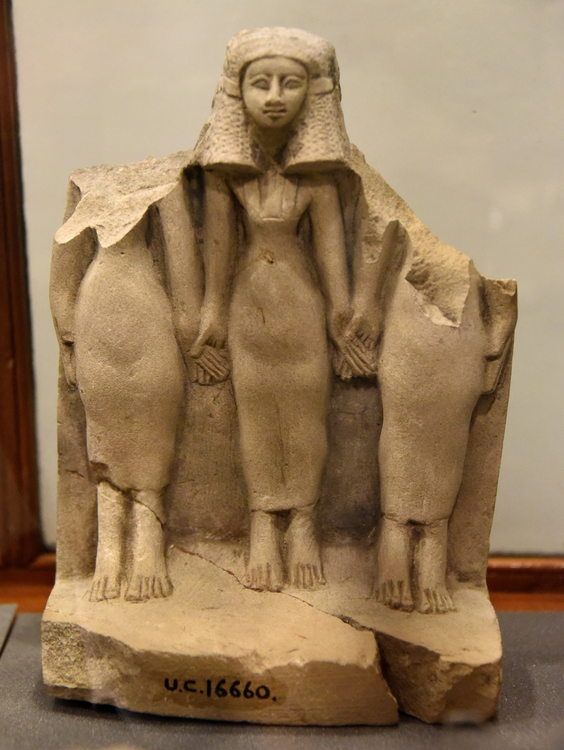
Female Physicians in Ancient Egypt
A famous story from Greece relates how a young woman named Agnodice wished to become a doctor in Athens but found this forbidden. In fact, a woman practicing medicine in Athens in the 4th century BCE faced the death penalty. Refusing to give up on her dreams, she traveled to Alexandria where women were routinely allowed in the medical profession. Once she had received her training, she […]

Hatshepsut
While she was neither Egypt‘s first female ruler, nor its only female pharaoh, Hatshepsut (1479-1458 BCE) was ancient Egypt ‘s first female ruler to reign as a male with the full authority of a pharaoh’s office. The fifth pharaoh of Egypt‘s 18th Dynasty during the New Kingdom period (1570-1069 BCE), today, Hatshepsut is rightly celebrated as a […]
Cleopatra VII
Cleopatra VII (69-30 BCE) had the misfortune to ascend the throne at a time when Egypt’s wealth and military power were in decline and an aggressive and assertive Roman Empire was expanding. The legendary queen also suffered from history’s tendency to define powerful female rulers by the men in their lives. Cleopatra VII was Egypt’s […]
Queen Nefertari
Nefertari means ‘beautiful companion’ and was the first of Rameses the Great’s Great Royal Wives. Known also as Nefertari Meritmutor or ‘Beloved of the goddess Mut’ Nefertari is one of Egypt’s most iconic queens, alongside Nefertiti, Hatshepsut and Cleopatra. However, comparatively little is known about her family or her past prior to Rameses ascending to Egypt’s throne. Much of […]
Queen Hatshepsut
Hatshepsut (1479-1458 BCE) is considered to be one of ancient Egypt’s most revered if controversial rulers. Celebrated by Egyptologists as a commanding female sovereign whose rule ushered in a long period of military success, economic growth and prosperity. Hatshepsut was ancient Egypt’s first female ruler to reign with the full political authority of a pharaoh. However, in […]

Women in Egypt — how the status of women in Egypt changed during the Ptolemaic Period
In chapter 18 of Hellenistic Egypt (2007, pp. 240-253), Jean Bingen discusses the cultural interactions between the native population of Egypt and its ruling minority of Greek-Macedonians and come to the conclusion that there is not much mutual acculturation between the two. The specific aspect of society and this proposed cultural dualism of Ptolemaic Egypt that will be investigated […]

Women in the Workplace
Egyptian culture empowered women from the time of the Early Dynastic Period (c. 3150 – c. 2613 BCE) through the Ptolemaic Period (323-30 BCE) as evidenced by powerful female rulers such as Neithhotep in the First Dynasty through Cleopatra VII in the Ptolemaic Dynasty. There does not seem to have been the necessity of a particular cult in the New Kingdom […]
The Domestic Cult
Each home had its own altar which had to be kept clean and neat. People did not go to the temples in town to worship their gods but held private ceremonies and rituals in their houses. These altars would usually have an image or statue of a patron god or goddess and offerings would be […]
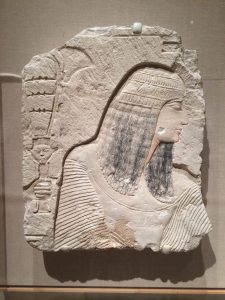
Women’s Work in Ancient Egypt
Women in ancient Egypt had greater rights than in any other civilization of the time. They could own land, initiate divorce, own and operate their own business, become scribes, priests, seers, dentists, and doctors. Although men were dominant and held the most important positions in society as a general rule, there is ample evidence of positions in which women had […]

Women Who Changed the History of Ancient Egypt
Women Who Changed the History of Ancient Egypt When we think of ancient civilizations, we usually assume that women were not treated as well as they are today However, Egypt treated its women better than any of the other cultures within the ancient world. Women of Ancient Egypt When taking any trip to Egypt you will learn […]


